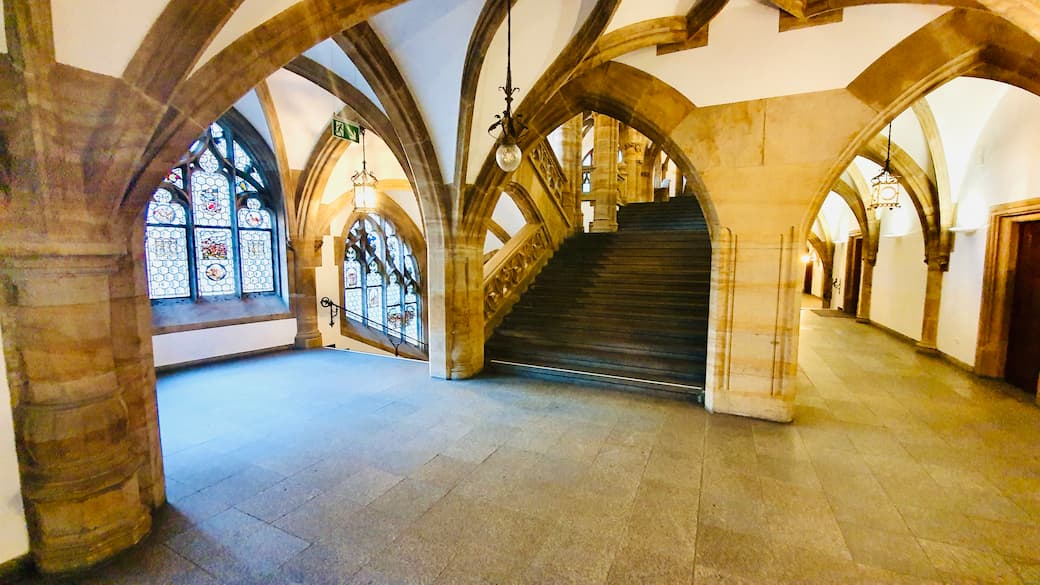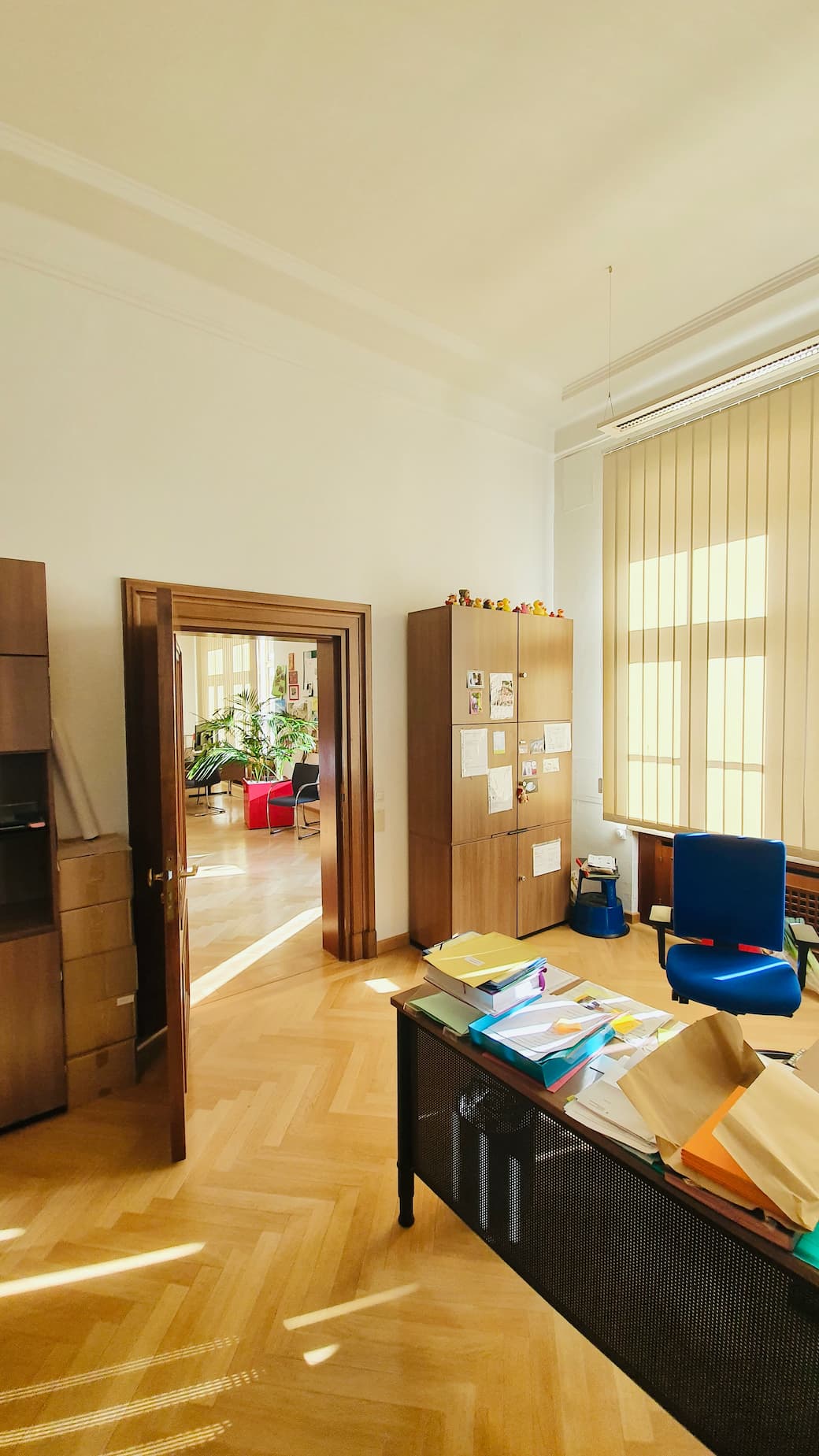
Interview with Munich’s mayor (binaural podcast)
Why this binaural podcast was produced
In a world where podcasts are becoming increasingly popular, we wanted to create a format that stands out from conventional productions. With this binaural podcast, we not only wanted to capture an interview with Munich’s mayor, Dieter Reiter, but also to create a truly immersive binaural experience that transports listeners to a special place.
Marienplatz, a world-famous square right in the heart of Munich, is full of life and stories that are often only perceived visually. Our goal was to transfer this visual form into the realm of sound – through technology that creates a 3D soundscape and allows the ears to feel right in the middle of the action.
What motivated us to create an immersive experience
We are driven by the belief that sound has incredible power to connect people emotionally. With our binaural recordings, we wanted to create a deeper connection with people by bringing them not only words, but also the surroundings, sounds, and atmosphere of places.
Recording the interview at the bustling Marienplatz was a perfect example of how binaural technology intensifies the listening experience. With the marching band playing outside, it feels as if you are actually there – all you need is a pair of headphones to have a full three dimensional sound experience.
Such immersive podcasts stand out from conventional audio formats and offer a unique experience that evokes emotions and leaves a lasting impression on the listener. Besides, we just wanted to keep trying out this kind of 3D audio and went on an adventure.
How to produce an immersive binaural sound in podcasts
For this binaural podcast production, I used a special microphone technique that mimics the human sense of hearing. This involved a binaural microphone that uses two ear-like microphones to capture sound waves from all directions exactly as our own ears would capture them.
This creates a spatial sound that produces an immersive 3D audio experience, especially when listening with headphones. However, it is not enough to simply set up an artificial head and start recording – the art lies in the fine-tuning to create a balanced soundscape.
Special challenges and solutions when recording at Marienplatz
Marienplatz is a busy and acoustically complex place. Here, you are faced with the challenge that ambient noise coming from the street or conversations can affect speech intelligibility.

It would be too easy to just set up an artificial head and let the microphone do the work. In fact, this often results in important sounds such as speech being lost in the abundance of the environment. Therefore, it was crucial to pay careful attention to the correct microphone placement and balance during the recording.
The head is not so easy to fool
But that was not all: in post-production, I had to remove specific background noise from the ears without losing the spatial dimension of the presenters. This process is particularly challenging because removing background noise can often affect the natural character and localization abilities of an artificial head.
Precise post-processing and fine adjustments were necessary to maintain speech intelligibility while authentically capturing the sounds of the environment.
What is the content of binaural podcasts?
The centerpiece of this binaural podcast is the interview with the mayor of Munich, recorded in the middle of Marienplatz. We covered subjects such as urban development, current challenges, and future projects in Munich.
As a podcaster, the mayor not only provided interesting insights into the city’s politics, but also talked about personal experiences and visions for the future. Thanks to the binaural recording technique, the interview seems particularly lively and immediate, as if you were there yourself.

Why binaural audio uses the cocktail party effect to make conversations clearer
A particular advantage of binaural audio is the reduced cognitive load for listeners. Similar to the cocktail party effect, in which our brain filters out the relevant sounds and voices in noisy environments, binaural microphony helps to hear conversations clearly and understandably, even when there is a variety of background noise.
This makes it easier for listeners to concentrate on the content of the podcast without being overwhelmed by the background noise.
Optimization for loudspeakers: How the podcast also works in the car
However, the binaural effect is most noticeable when listening on headphones. When the podcast is played over loudspeakers, some of the spatial depth is lost, making the listening experience less immersive. To ensure that the podcast still works in environments such as the car, I made special optimizations in post-production.
These adjustments ensure that the podcast remains comprehensible even when played over loudspeakers and that listeners can follow the conversation clearly – whether they are on the road or at home.
Audio sample:
liebe.bayern by Andrea Pauly and Stefan Hanitzsch:
I am your expert for all binaural podcasts
If you also want to use the power of binaural audio for your projects, I am at your side as an expert. From the idea to the technical implementation: I bring your listeners right into the action and create unique, immersive sound experiences. Let’s take your podcast to the next level together!
ID falsch, oder keine URL gefunden